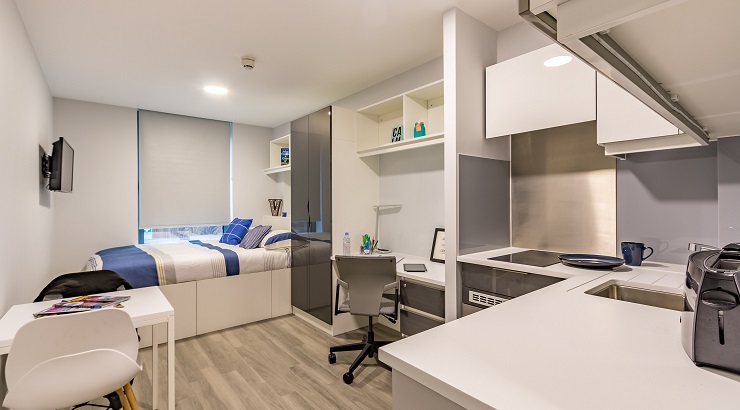Residential Projects
Nairobi Tycoons Splash Out Billions on Student Hostels
Kenya has a shortfall of more than 200,000 student beds.

Student housing is becoming a popular investment option among Nairobi tycoons who are increasingly teaming up with global venture capitalists to build hostels in strategic locations across the Kenyan capital.
Thanks to the rising number of scholars seeking higher education away from their rural homes, there has been a growing shortage of student housing in Nairobi and other major towns of Kenya – a situation that has drawn the attention of property investors.
Armed with big money and well-crafted strategies, the investors are building modern hostels near top colleges and universities with the hope of attracting thousands of students who are unable to find campus-based accommodation.
A group of city architects branding itself as Student Factory Africa Ltd., has, for example, joined forces with the Kenya Conference of Catholic Bishops and Betonbouw B – a Dutch private equity firm – to launch a multi-billion-shilling hostels project in Nairobi.
The Sh5 billion venture that is set to commence this month will be located in Karen, next to the Catholic University of Africa – whose students will be the key beneficiaries of the project.
Students from other neighbouring universities will also be permitted, with every scholar expected to pay a rent of between Sh10,000 and Sh18,000 per month.
Branded hostels
Phase one of the 4,500-bed hostel project is expected to be completed by May next year, making it the country’s third branded student housing venture after Acorn Group’s Qwetu and Qejani hostels.
“These institutions have been asking for it, and it is just that investors have not been able to tap into that market,” Student Factory Africa’s CEO Chris Osore said during the signing of the deal with Betonbouw.
RELATED: Property Developers Eye Big Profits from Student Housing
The equity firm will provide about 30% of the budget with the rest of the financing coming from lenders. Student Factory is already in talks with the International Finance Corporation (IFC) and other development finance institutions to unlock additional financing.
The project comes at a time when Acorn Group is pushing forward with plans to build 50,000 units in student-rich areas of Madaraka, Ruaraka, Parklands, Jogoo Road, and Thome near USIU-Africa in Nairobi.
Acorn has completed several hostels in Baba Dogo, Jogoo, Parklands and Karen under the Qwetu brand, with more facilities coming up in Thome and Chiromo under the Qwetu and the low-cost Qejani brand.
University of Nairobi
Using the Qejani brand, the company is building an 18-floor property hosting 704 units that will house 2,112 students on a parcel of land on Science Crescent Road off Riverside Road in Nairobi. The facility targets students from the University of Nairobi’s Chiromo campus.
Close by, a second building – a 16-floor property with 574 units – is set to come up under the premium Qwetu brand. It will host 837 students in single, twin, and cluster types of rooms.
Other investors involved in the student accommodation market include Questworks which is building 200 units (Parallelfour) in Madaraka and the Kenya Defense Forces Old Comrades Association which is putting up 500 units (Studyville) in the same estate.
Both hostels target scholars from Strathmore University.
Century Developments and Karumo have also signed a partnership deal to build 10,000 student accommodation units in Kenya in the next five years.
Positive outlook
Analysts reckon that growth in the student housing market in Kenya will be spurred by a recent proliferation of both public and private universities that are unable to offer campus accommodation.
“Most universities are unable to house all their students,” says John Waikwa, who runs a private hostel in Nairobi West. “Developers are now splashing their cash on hostel projects.”
RELATED: State Courts Private Investors in Sh20bn Hostels Project
According to the Ministry of Education, the available student housing in Kenya stands at an estimated 300,000 units against a university enrolment of more than 500,000 as of 2019, locking nearly half of the students’ population out of campus-based accommodation.
To solve the issue, universities are engaging private investors to build hostels for their students in a Public Private Partnership (PPP) model where the investors will manage the facilities for several years to recoup their investments before transferring the hostels to the universities.














